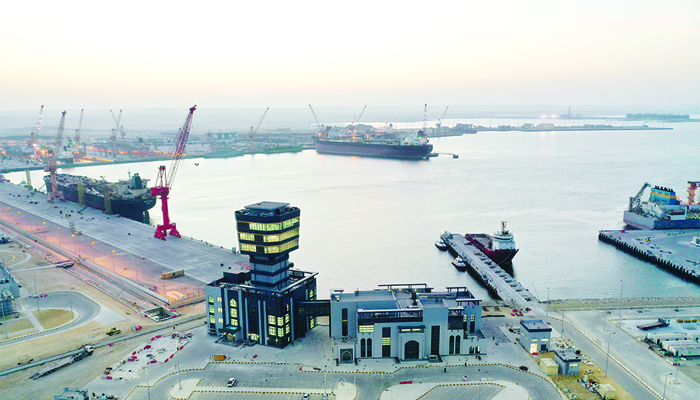
Muscat: More than OMR14 billion of investments have been made in the economic zones, free zones and industrial zones in 2021, the Chairman of the Public Authority for Special Economic Zones and Free Zones (Opaz), said on Tuesday.
Elaborating on how these investments were distributed, Dr. Ali bin Masoud bin Ali Al Sunaidi, Opaz Chairman, in an exclusive interview to Al Shabiba Radio, said the Special Economic Zone at Duqm received investments worth OMR3.65 billion and Salalah Free Zone OMR3.40 billion at the end of 2021. Madayn attracted more than OMR6.60 billion investments while the Al Mazunah Free Zone received investments worth OMR135 million and Sohar Free Zone received OMR415 million.
“Thus, the total investments in the economic zones, free zones and industrial zones in 2021 amounted to OMR14.38 billion,” he said, adding that this does not include investments within the borders of the port of Sohar, which are estimated at an additional OMR9 billion.
Speaking about the steps taken by Opaz to facilitate investment procedures in areas affiliated within zones, Al Sunaidi said: “The authority has inaugurated the one-stop shop, and has started unifying the investment climate, in addition to updating legislation and the laws to serve the business environment better, besides unifying licences, approvals and certificates related to investing in the zones.”
The authority has additionally sought to localise some industries such as alternative energy projects, pharmaceutical industries, artificial intelligence, food industries and other industries.
It has recently signed a cooperation programme with the Ministry of Labour to facilitate procedures and raise the level of services provided to investors in affiliated regions.
“The authority has a way to ensure the speedy completion of licences and permits of all kinds through the electronic channels of the one-stop shop,” he further added.
Regarding the incentives offered to investors in the different special and free zones, Al Sunaidi said: “The incentives offered in free zones vary through the application of free zone laws and include several advantages, including 100 percent foreign ownership, no income tax for 20 to 30 years, no customs duties and long-term rents and usufruct (land lease) agreements, some of which is for 99 years, with the facilitation of allowing the recruitment of labour, especially in the first year of production, in order to be able to train the skilled national workforce.”
“However, these advantages obligate factories to pay customs duties when selling to the local market or the market of the economic groups in which the Sultanate of Oman participates, and we see that the incentives that these regions have are competitive,” he said. A lot of achievements have been made and development, expansion and projects have been implemented in various sectors and special economic and free zones, he said.
These include strengthening the electric power sector from renewable sources, the communications network and artificial intelligence (AI), and training national labour on technologies that operate cranes at ports and container transportation equipment that operates with the fifth generation technology.